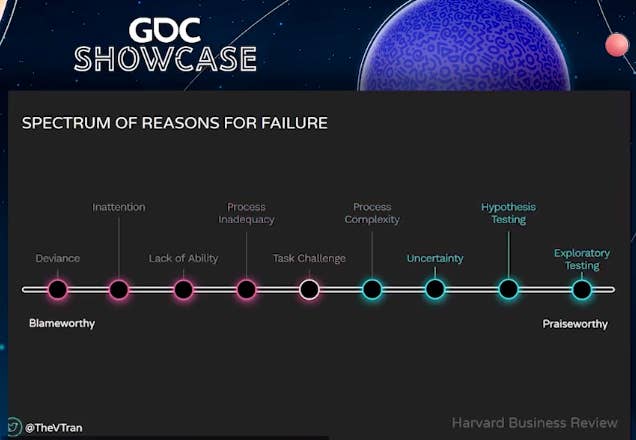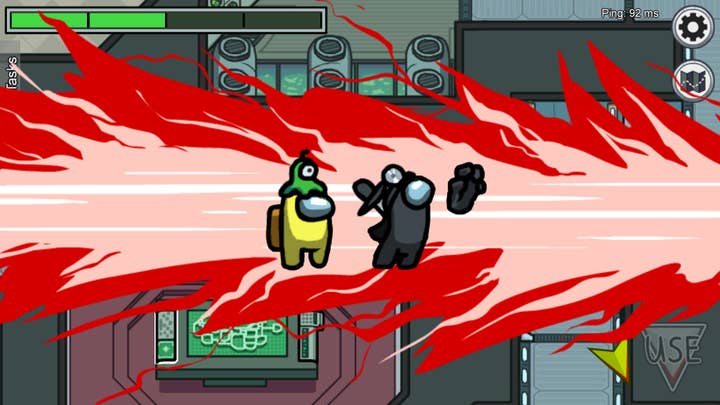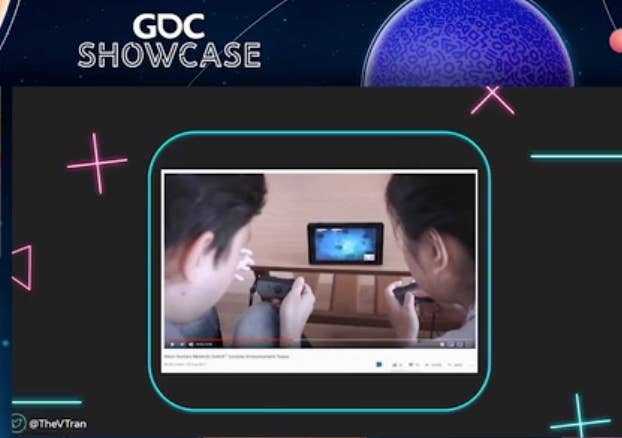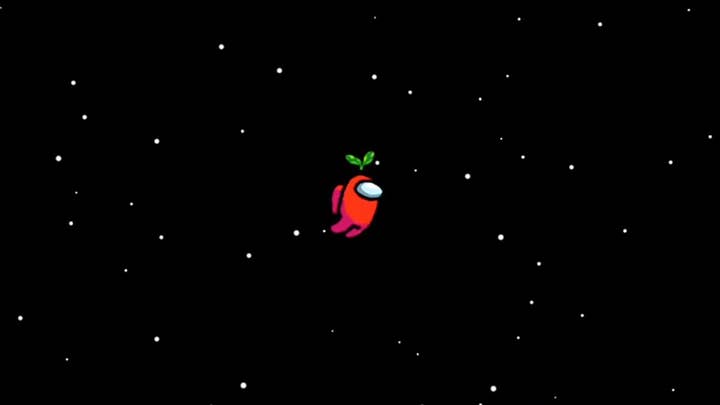Making marketing mistakes or the art of failing properly
At GDC Showcase, Innersloth's Victoria Tran explored the right way to approach failure, and what you can learn from it
The games industry is littered with failures. For every successful title, there are hundreds of abandoned projects, critical flops, and development mistakes that led to utter and inescapable failure.
Some of these failures are very public. Remember when we all thought Ouya was going to be the next big thing? Or that OnLive was actually going to be the first successful game streaming service? But most failures take the form of projects that quietly die before they're even revealed.
"Success looks like a lot of different things for a lot of different people -- whether that's awards or press coverage, a successful Kickstarter perhaps, or a strong community following," Innersloth community director Victoria Tran said at GDC Showcase last week.
"It could be anything. But here's a thing: it is actually built on trash. So much trash. Success is built on the ruins of failures that nobody else has seen, because they just weren't picked up by the public, weren't talked about or were just completely forgotten."
"[Success] is actually built on trash. So much trash. Success is built on the ruins of failures that nobody else has seen"
But that trash doesn't need to forever remain stuck in your brain as that one thing you regret and that keeps you up at night. Knowing how to approach failure and what to do once the mistakes are made was the topic of Tran's talk. While her presentation was geared towards marketing, she gave advice that can be applied to many aspects of working in games.
"Failure is more than just an embarrassing moment in my life that I want to bury," she said. "I can learn from it and it's not just that I can make it make me smarter, invigorate me and a better more well-rounded person.
"Basically failure becomes the compost and fertiliser for growth and success. I want my trash to become a resource that feeds into the roots of my success and have it grow into an entire garden that attracts cows. Give me even more fertiliser and then I can literally milk failure for all it has and never have to find unexpected failure trash again. That was a very long-winded analogy to say that I basically tried to really change my mindset towards failure. I always want to succeed but when failure does happen there is value in it and I want to maximise that value."
The different types of failures
Tran started her talk by identifying the different kinds of failures you can encounter in your career, as some types of mistakes are more desirable than others. Knowing the difference between them will help you to prevent them or learn from them in a more efficient way.
"[You] want to strategically create failures in the right places at the right times," Tran explained. "There are basically a million permutations for how things can go wrong in game development and marketing, but very broadly and according to the Harvard Business Review, there are three main categories that they fall into: preventable, complexity-related, and intelligent."

- Preventable failures
The first category, preventable mistakes, comprises predictable scenarios, which themselves can be categorised in many sub-categories, such as:
- deviance, "which means you knew A would definitely cause B and you did it anyway"
- a lack of ability, meaning you just didn't have the skills to carry out your plan
- inattention
Regarding the latter, Tran told the story of one of her own mistakes. When she started at Innersloth and created the Among Us Twitter account, her first three tweets had spelling errors, one of them being misspelling the word "impostor." She also copied and pasted an emoji into Twitter and instead of displaying the folded hands emoji, it said the words "folded hands."
"But honestly it worked out and I did learn a lot from it," she said. "Don't follow your own bad habits. I was really nervous when I launched the Among Us Twitter account and I didn't read over things because I was nervous. Lesson learnt. Take a breather and it'll probably save you a lot of heartache."
- Complexity-related failures
Some mistakes simply happen because things are not always as easy as proofreading your tweets before sending them. This is especially true in games where there are a lot of different parts to the puzzle.
"Game development and marketing have a lot of uncertainty in their processes and as we know oftentimes things will probably go wrong during it," said Tran.
"So whether that's due to difficulty or a lack of ability, we don't need to consider any of these process failures as bad necessarily, that's kind of counterproductive. Avoiding huge failure means we need to be able to spot and fix small, minor failures and not leave them unnoticed and bury them under the rug."

- Intelligent failures
Finally, the Harvard Business Review identifies what it calls intelligent failures, which provide value and "can help your studio leap ahead of the competition," Tran said.
"These are things that require experimentation because they're new ventures. So, you know, maybe you're trying out TikTok, exploring ads after researching them, or an amazing new marketing campaign idea.
"These are things that are considered trial and error, but it's sort of a misnomer, because error implies that there is supposed to be a correct outcome in the first place, when you're more so experimenting and seeing what works."
"So maybe you have failed at one thing but that doesn't mean you are a failure"
It's worth noting that there are other ways to categorise failures beyond the Harvard Business Review classification, and Tran herself mentioned other definitions later in her talk, such as hierarchical failure, for instance. This is when something may succeed in one level of the studio but not in another.
"So maybe the marketing campaign was a success in terms of execution, but management wasn't satisfied with the value of the result," she explained.
In some cases, failure is also subjective -- maybe you ticked all the boxes of your marketing campaign, but it'll still be seen as failure by some people for reasons that are not necessarily rational.
The importance of accountability
When any of these mistakes do happen, you need to make sure you emerge from the situation with takeaways -- and that starts with accountability.
When Tran made these spelling errors in the Among Us tweets, she didn't just ignore them. She acknowledged them and owned the errors. That's the first step of accountability.
"Don't be a spectator, be an active owner of your problem," she said. "When you take ownership for the mistake, you gain back a lot of confidence in yourself when it does get better. And it just works out a little bit more.
"We like accountability because you stop trying to blame other people and make excuses. Instead, you take the fall and you ask what's next"
"Accountability means we're asking what and not who. So unlike responsibility, which is more [what happens] before, personal accountability is what happens after. So let's say you've made a mistake, what are you going to do about it? We like accountability because you stop trying to blame other people and make excuses. Instead, you take the fall and you ask what's next and decide what choices cause problems."
Tran acknowledged that the first reaction to any mistake is usually shame and stress. But she added that you shouldn't wallow in that sort of damaging self-talk.
"We all know conceptually everyone fails, but with social media it's hard to remember that. But everyone does fail and you don't need to invalidate your feelings when it comes to failure. You'll be fine. So maybe you have failed at one thing but that doesn't mean you are a failure."
Once you have processed that initial gut reaction, you need to properly understand what happened, by asking yourself four questions:

- What is the problem?
- What am I doing or not doing to contribute to the problem?
- What will I do differently to help solve the problem?
- How will I be accountable for the result?
"These are four really good questions to just start you off in terms of accountability. And please note: the culture around failure is very important. It's not just on you. Hopefully your studio manager has created an environment where you feel safe being accountable for owning up to your mistakes. Or if you're in a power position, you have cultivated the environment with your own employees.
"And very importantly you need to take accountability for your wins, too. It's still nice and good to remember you are talented and you are there for a reason. You don't need to just take accountability for mistakes; take accountability for when you do well."
Growing from your mistakes
Once you've taken ownership of the issue, you need to tear it apart and really dig into what you can learn from it, Tran said, whether that means developing new skills or setting more accurate expectations going forward.
"The first way we're going to get insight is by getting as specific as possible about why it happened -- and not just general first-level reasons why something failed. So for example: I didn't read over my email before hitting send and it had a huge typo in it. To properly understand it, you need to look and dig deeper into the second and third reasons about why something happened. For instance, I didn't read the email because I had an overloaded work schedule and/or I'm just not someone who often checks over things, so I really need to make sure I schedule in that extra five minutes to do so in the future.
"The bigger the failure, the more likely there are intricate reasons why something failed"
"The bigger the failure, the more likely there are intricate reasons why something failed. Understanding what happened and how to prevent it from happening again requires a really detailed tearing apart discussion and analysis of the failure."
One good thing about mistakes, she added, is that what happened is usually very clear, which means it comes with a lot of information you can analyse.
"There's two ways we can learn from this. The first is informational where it has a very definite clear result that tells us: don't do this. The second is directional; it closes off a lot of different paths, but it also leads us to new adventures to explore."
Once you have these insights, use them for personal development. One of the most direct learning from your mistakes is that they highlight which skills you have and which you don't.
One personal mistake Tran mentioned in her talk was related to the trailer for the Nintendo Switch release of Moon Hunters, a game she worked on when she was communications director at Kitfox Games. The screenshot below is the only moment where the trailer featured gameplay.

"The rest of it was a silly skit," she explained. "And people noticed. At the time I was mortified that we had put out a trailer that didn't have gameplay. Of course, we need gameplay, why didn't I think of this?
"But we learned lessons from it. First is to continue. No wallowing -- what are you going to do with this next? What wrong assumptions did we make about the audience? And it's not the end of the world when something fails. Your team has already felt the failure so they need to know what you are going to do next.
"Second is audience. Fundamentally we forgot who we were talking to. We weren't talking to old fans and we forgot to add value into our content. So now what I ask myself all the time is: why does this content matter? Why does someone care?
"We want to be specific about areas we need to develop on. If you don't nail it down, vagueness leads to inactivity"
"And third was skills. I just needed a more holistic view of my own talents. And also because I was still sort of new I needed to learn to speak up more, but also figure myself out. I have my own weak spots when it comes to marketing, and being able to acknowledge and know where we are in our skill tree of life is very important. And again we want to be specific and proactive about areas we need to develop on. If you don't nail it down, vagueness leads to inactivity."
Being proactive is key to developing yourself and the studio further after a mistake. When something gets in the way, assess it, resolve it, communicate it and do that all proactively to make sure your team or the studio are on board with your plan, Tran explained.
"This will also help you gain back a lot of the trust that you might have lost when you made a mistake," she added.
Another way failure can help you improve is it allows people to understand their expectations much more accurately.
"I [tend to] get caught up in saying yes to too many things and I get really afraid of letting people down by saying no. This isn't really the proper way to go at it. You need to set expectations not only for yourself but for other people and what's expected of you. Being able to give proper time and attention to each task is important in making sure you minimise the catastrophic failure, but also that every project that lands on your lap is given the proper attention it needs to excel."
Concluding her talk, Tran invited viewers to remember what mistakes they've made in the past and see if they can pick them apart to see what happened, and actively think about how they've grown from it.
"For me, failure is really important and I am always trying to fail sometimes because a failure means that you're playing at your upper limits and you're trying. And anytime you're trying is a really noble and positive thing to do."

